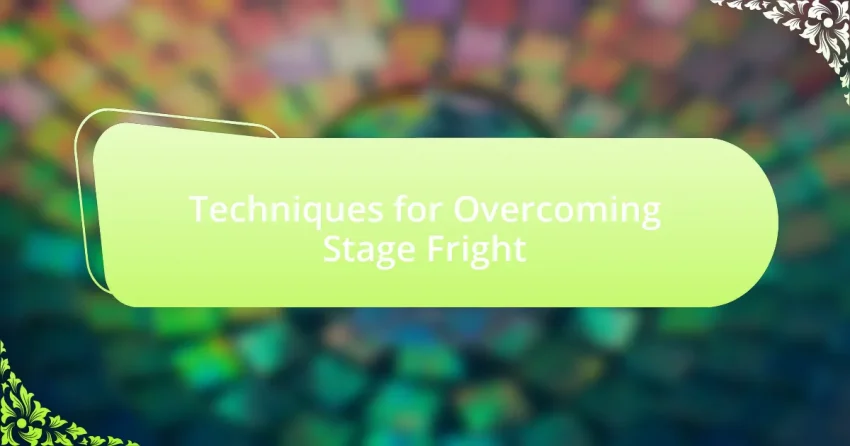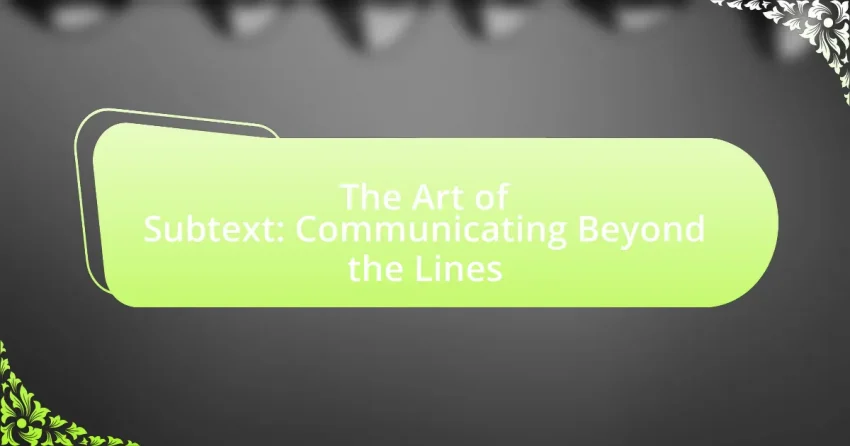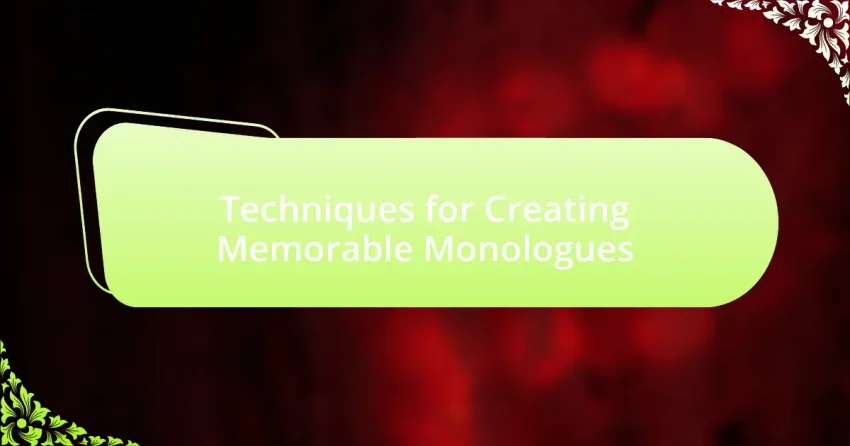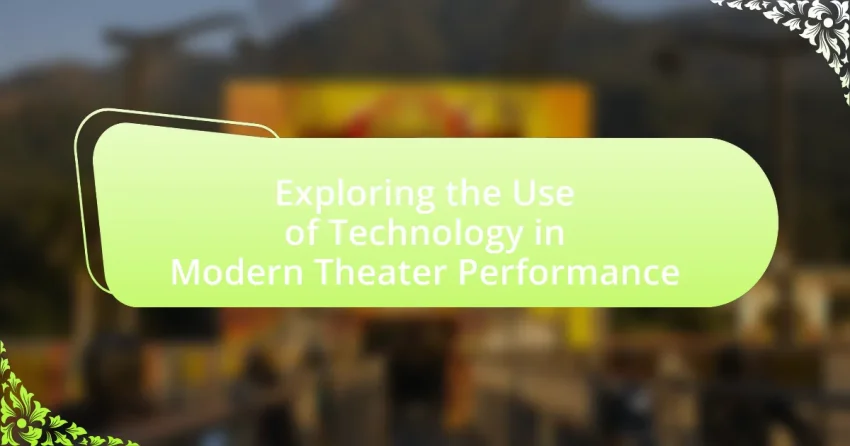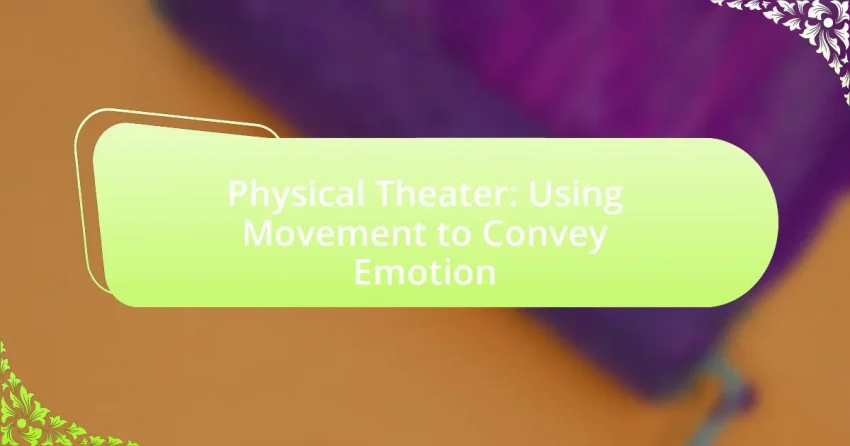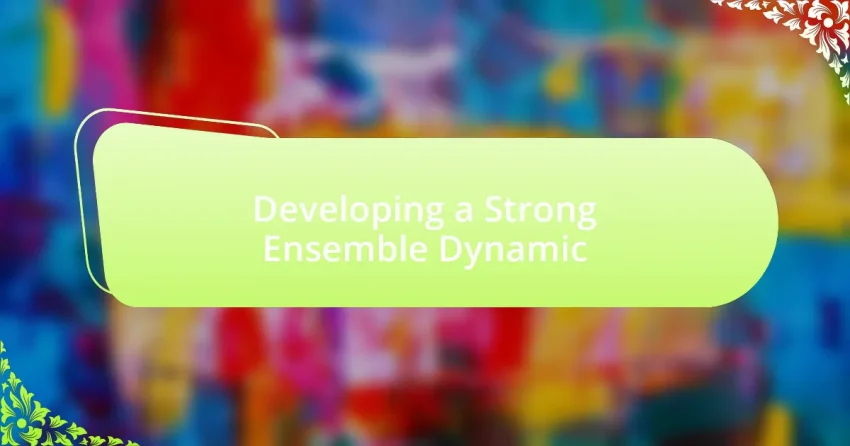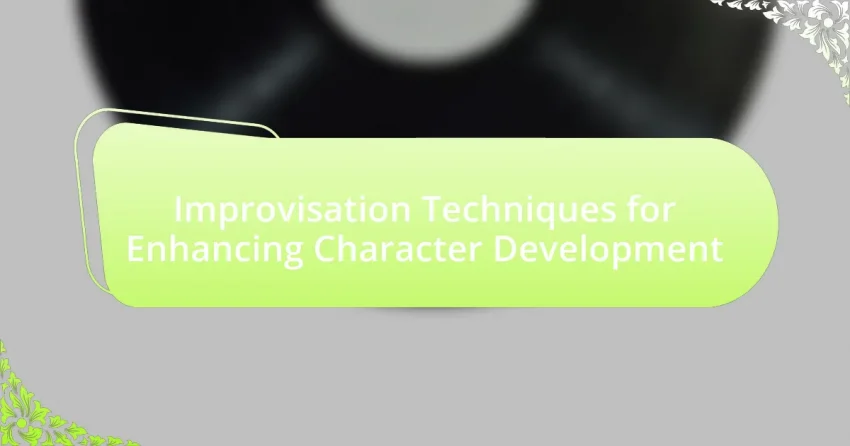The article focuses on techniques for effective scene transitions in visual storytelling, emphasizing the importance of cuts, fades, wipes, and dissolves. It explores how these transitions impact narrative flow, pacing, and emotional engagement, highlighting their role in maintaining coherence and enhancing viewer comprehension. Additionally, the article discusses common pitfalls in scene transitions, best practices for…
Performance Techniques
Welcome to the ‘Performance Techniques’ category, your gateway to mastering the art of effective presentation and expression. Here, you will find a range of articles designed for individuals looking to enhance their skills in public speaking, acting, dancing, and even musical performance. Each piece offers valuable insights and practical tips to help you connect with your audience and showcase your talents confidently.
Dive into methods that can elevate your performance. Discover techniques on breathing, body language, and vocal projection. Learn how to manage nerves and maintain focus. Whether you are a beginner or looking to refine your skills, this category has something for everyone. Get ready to explore, practice, and shine in your performances!
Techniques for Overcoming Stage Fright
Stage fright is a psychological condition marked by intense anxiety and fear experienced during public performances, affecting approximately 75% of individuals. This article explores the manifestations of stage fright, including physical symptoms like increased heart rate and sweating, as well as emotional responses such as fear of judgment and self-doubt. It examines the psychological factors…
The Art of Subtext: Communicating Beyond the Lines
The Art of Subtext refers to the implicit meanings and messages conveyed in communication, extending beyond the literal words spoken. This article explores how subtext enriches storytelling and interpersonal communication by revealing deeper themes, emotions, and motivations through techniques such as irony, symbolism, and body language. It highlights the importance of context in interpreting subtext,…
Techniques for Creating Memorable Monologues
The article focuses on techniques for creating memorable monologues, emphasizing key elements such as strong character development, emotional authenticity, and a clear narrative arc. It explores how character development influences monologue delivery, the importance of emotional resonance, and effective methods for evoking audience emotions. Additionally, the article discusses practical techniques for structuring monologues, incorporating language…
Techniques for Building Onstage Chemistry Between Actors
The article focuses on techniques for building onstage chemistry between actors, emphasizing the importance of active listening, trust-building exercises, and physical connection. It explores how physical proximity, body language, and touch contribute to emotional resonance and intimacy in performances. Additionally, the article discusses emotional techniques such as vulnerability and mirroring, as well as the impact…
Exploring the Use of Technology in Modern Theater Performance
The article explores the significant role of technology in modern theater performance, highlighting how digital tools enhance storytelling, production quality, and audience engagement. It discusses various technologies commonly used in contemporary theater, such as projection mapping, sound design software, and automated lighting systems, which contribute to immersive experiences. The article also addresses the challenges theater…
Physical Theater: Using Movement to Convey Emotion
Physical theater is a performance art form that prioritizes the use of movement and physical expression to convey emotions and narratives, often minimizing spoken dialogue. This genre integrates techniques from dance, mime, and acrobatics, allowing performers to communicate complex stories through their bodies. The article explores the distinctions between physical theater and traditional theater, key…
Developing a Strong Ensemble Dynamic
Developing a strong ensemble dynamic is the process of enhancing collaboration and communication among group members in performance settings, such as music, theater, or sports. This dynamic is characterized by trust, mutual respect, and a shared commitment to collective goals, which significantly improves performance quality and creativity. Key elements include effective communication, defined roles, and…
Improvisation Techniques for Enhancing Character Development
Improvisation techniques play a crucial role in enhancing character development in performance arts. Key methods such as role-playing, character backstory creation, and emotional recall allow actors to explore their characters’ motivations and emotions, leading to more authentic portrayals. Specific exercises like “Character Hot Seat” and “Emotion Walk” facilitate deeper understanding and empathy, while the integration…
Strategies for Portraying Complex Characters
The article focuses on strategies for portraying complex characters in literature and storytelling. It outlines key techniques such as developing rich backstories, showcasing internal and external conflicts, and allowing for character growth. The discussion includes the importance of character traits, the role of dialogue and relationships, and the impact of setting on character complexity. Additionally,…

